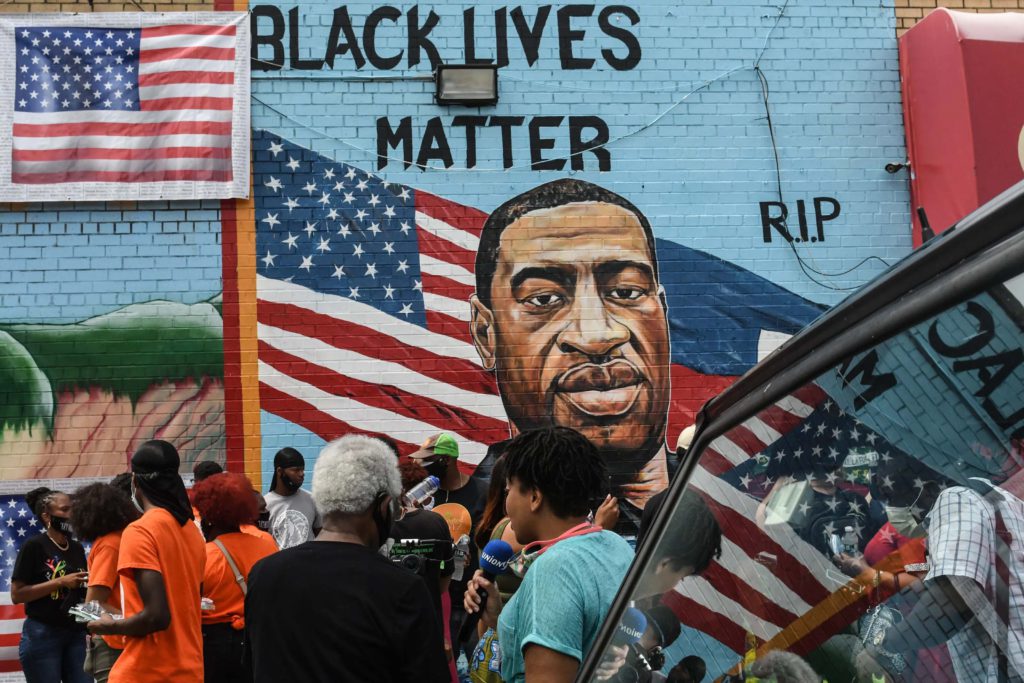
On April 20, 2021, a jury convicted former Minneapolis police officer Derek Chauvin of the murder of George Floyd in May 2020.
OSPI has gathered resources from across the web to help educators, families, and caregivers understand how to talk about the verdict, racism, and police violence with their students and children.
For Families and Caregivers
- Britannica for Parents: How to Talk to Young Children About the Police — Britannica for Parents gathered expert advice for how to talk with children about the role of police in your community.
- PBS for Kids: Talking to Young Children About Race and Racism — Here are tips and resources to help you have a meaningful conversation with young children about race, racism, and being anti-racist.
- American Academy of Pediatrics: The Traumatic Impact of Racism and Discrimination on Young People and How to Talk About It — Strength-Based, Trauma-Sensitive, Resilience-Building Communication Strategies Rooted in Positive Youth Development
Resources for Dialogue
- Difficult Dialogues National Resource Center: The DDNRC’s resources provide tools to engage in difficult conversations in classroom and other settings.
- Living Room Conversations: Provide a simple guide to begin to engage in conversations across topics of conversation such as race, nationality, gender, age, and more.
- Talking About Race: The National Museum of African American History and Culture’s Talking About Race guide may be helpful in preparing to navigate discussions about race and racism.
- Robin DiAngelo: Nothing to Add: White Silence in Racial Discussions — This paper analyzes a common dynamic in interracial discussions on race: white silence.
Resources for Educators:
- Greater Good Magazine: How to Avoid Doing Harm When You Discuss Race at Work
- New York Times: Lesson of the Day: How Teachers Are Exploring the Derk Chauvin Trial with Students — In this lesson, students will learn how schools across the country are addressing the trial of the former police officer charged with the murder of George Floyd.
- Princeton University: The Derek Chauvin trial: Resources and support for the University community
- National Education Association’s Creating Space To Talk About Race in Your Classroom — This comprehensive NEA resource guide includes tools & resources for talking about race, conducting racial equity assessments, strategic planning, ideas for capacity building and action, FAQs, and a directory of web pages, documents and allied organizations focused on racial justice in education.
- Education Week’s 16 Resources on Talking to Students About Police Killings and Racism — To help educators think about how to discuss these cases and other race-related violence and how to support Black students and other students of color who may be distraught by what they read and see in the media, Education Week has compiled some resources from its archives and elsewhere.
- Education Week’s 15 Classroom Resources for Discussing Racism, Policing, and Protest — For teachers looking for more classroom resources on racism, policing, and protest in the U.S., Education Week has compiled the following list:
- Learning For Justice’s Teaching About Race, Racism, and Police Violence— Resources to help spur much-needed discussion around implicit bias and systemic racism, and to empower students to enact the changes that will create a more just society.
- NPR’s Q&A: How To Talk To Kids About Black Lives And Police Violence — Interview with teacher, author, activist, and father of two Black sons Jesse Hagopian about what it means to teach for black lives and why it’s important.
- The Atlantic’s How to Talk to Kids About Racism and Police — The Atlantic’s “On Teaching” series focuses on the wisdom of veteran teachers.
- Facing History’s Reflecting on George Floyd’s Death and Police Violence Towards Black Americans — This Teaching Idea is a guide for teachers to begin conversations with their students about George Floyd’s death and the events that surround it.
- Illinois Civics’ Resources to Respond to Tragedy and Violence — Teachers can create a classroom space where we can be present, listen, and create a safe environment for our students to do the same.
- Our Lives Matter PSA, by the Just Us Project — The “Our Lives Matters” project was inspired by the extrajudicial killings of minorities, particularly boys of color who are targeted on a daily basis. Fear of these young men continues to be seen as justification for the use of deadly force. This video project was created to provide a voice for these young men, as they demonstrate what it feels like to wear a target.
